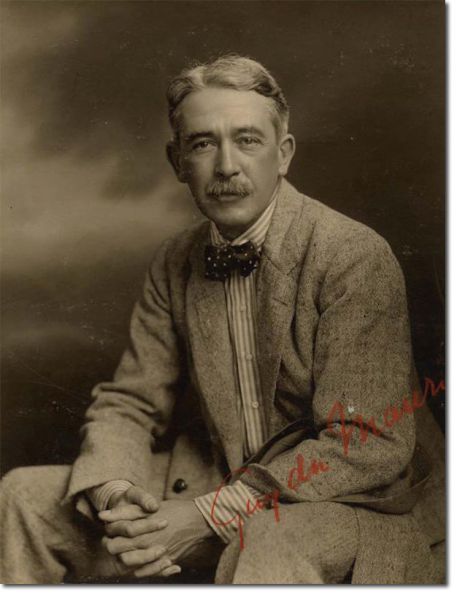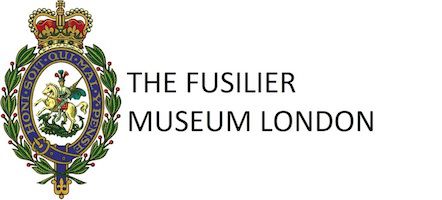
Guy Louis Busson du Maurier was born in 1865, the second child and eldest son of George and Emma du Maurier. Guy was the uncle of the famous writer Daphne du Maurier.
Du Maurier went to school at Marlborough College and then went on to the Royal Military College at Sandhurst. He was a keen rugby player and was a member of Rosslyn Park Football Club. He was commissioned into the Royal Fusiliers (City of London) Regiment as a lieutenant in 1885 and went on to serve in Burma and South Africa. In 1896 du Maurier was promoted to Captain and then to Major in 1900. He was awarded the DSO in October 1902 for bravery during the Second Boer War where he commanded a mounted infantry company.
Du Maurier married Gwendoline Price in the summer of 1905 while home on leave. While at home with his family he would often talk about the possibility of war with Germany and of the German Army invading Britain by surprise. This lead to the writing of his play ‘An Englishman’s Home’. The play was seized upon as a propaganda tool for those at the time in favour of an Army based on compulsory military service. Territorial Army recruiting posts were set up outside theatres. When news of the sell-out success reached du Maurier serving in South Africa, he wired cablegrams home including one to the Daily Express emphasising the play’s propagandising intent:
“Thanks for your congratulations. Cannot say much. King’s Regulations seal my lips. If there are any lessons in the play hope it will run till they are learnt”.
Despite the success of ‘An Englishman’s Home’, du Maurier continued as a professional soldier. He was promoted to Lieutenant Colonel, 3rd Battalion Royal Fusiliers (City of London) Regiment in April 1911.
At the outbreak of World War One du Maurier’s battalion was stationed in India. It returned in December 1914 and was attached almost immediately to the 85th Infantry Brigade, 28th Division and moved to France, arriving there in January 1915. His brigade was temporarily transferred to 9th Brigade, 3rd Division on 17th February to provide additional support after a gruelling winter campaign.
Du Maurier wrote many letters home to Gwen while in France over the period of January to early March 1915, describing many aspects of his life in the trenches. His last letter dated 8th March spoke of more casualties among his comrades and ended:
“We must make up our minds to the loss of another quarter of a million soldiers lives and then perhaps we will pull off a victory...no anything but hard pushing against their line is going to end this war. No talent wanted, no great men- thank goodness for our sake, just men in masses and equipment and ammunition for them.”
The following day Guy was killed, aged 49, by a shell exploding while he ensured his men were safe in their dugouts. He was to have been promoted to Brigadier-General the next day.
Guy du Maurier was buried at Kemmel Chateau Military Cemetery. He is commemorated on the family grave at Hampstead Parish Church and due to his association with the theatre, his name is also on the war memorial outside Drury Lane Theatre.
Research undertaken by Volunteer Johnny Baird.

Famous Fusiliers
From a Pirate Radio 'Prince' to notorious East End Gangsters.
